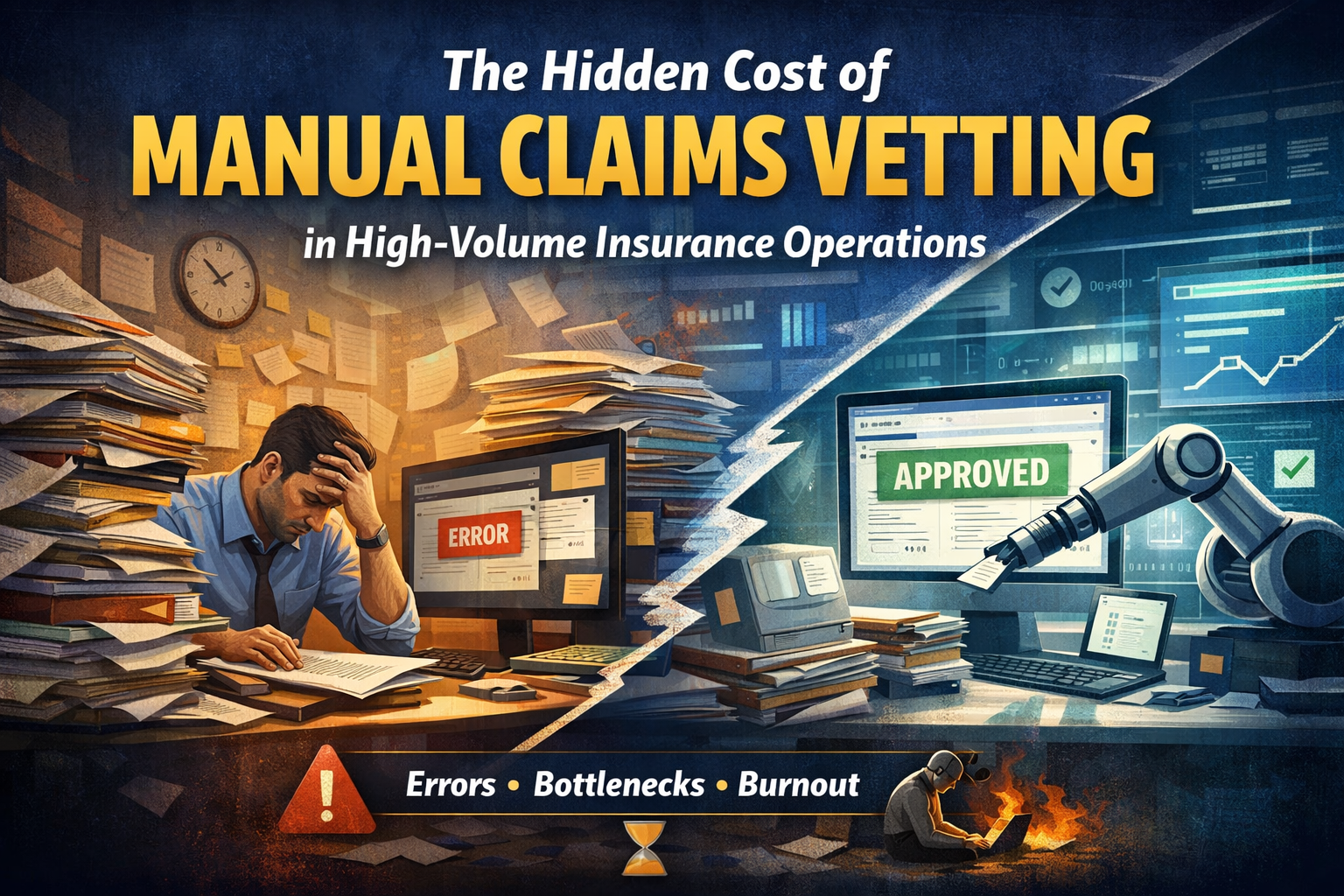Why Ecommerce Insurance Is the Next Big Thing in Africa: Trends, Stats & the Role of Insurtech
Ecommerce is booming across Africa, with millions of businesses and consumers relying on digital platforms for trade. But with this growth comes new risks—logistics failures, cyber fraud, product damage, and more. Ecommerce insurance is rapidly emerging as a crucial safety net in this digital-first economy.
This article explores the growing need for ecommerce insurance in Nigeria and Africa, highlights key statistics and pain points, and shows how insurtechs—particularly Curacel with its Grow product—are revolutionizing access, affordability, and transparency.
The Rise of Ecommerce in Africa
A Continental Surge
Africa's ecommerce market is experiencing unprecedented growth. According to Statista, the continent’s ecommerce revenue is projected to reach $75 billion by 2025, up from $16.5 billion in 2017. Nigeria leads the charge, contributing over 30% of the continent’s ecommerce transactions.
Key drivers include:
- Rising smartphone penetration (projected to reach 87% by 2030).
- Improved internet access (over 570 million internet users in 2023).
- Growth of fintech, allowing more people to shop online via digital payments.
However, as digital trade expands, so do the vulnerabilities.
Ecommerce Risks: What’s at Stake?
Ecommerce businesses in Africa face various operational and financial risks, including:
- Delivery and Logistics Failures
Up to 40% of ecommerce returns in Nigeria are due to failed or delayed deliveries, often linked to poor logistics and damage during transport. - Theft and Product Loss
A 2022 report from the African Ecommerce Monitoring Group revealed that 23% of sellers in Lagos reported product loss during third-party deliveries. - Cybersecurity Threats
In 2023, cybercrime targeting small ecommerce businesses increased by 37%, with phishing and payment fraud being most common. - Return Fraud and Chargebacks
According to Paystack’s merchant data, 1 in 5 ecommerce transactions involving refunds may be fraud-related, causing significant revenue leakage. - Platform Dependency Risk
Businesses selling primarily on platforms like Jumia or Konga are vulnerable to policy changes or outages that can instantly halt operations.
These risks are prompting a stronger demand for insurance solutions tailored to the ecommerce ecosystem.

Ecommerce Insurance: What It Covers
Ecommerce insurance is an umbrella term that may include various types of coverage, such as:
- Transit and Logistics Insurance – Protects goods from damage or loss during delivery.
- Cyber Insurance – Covers data breaches, digital fraud, and ransomware.
- Return/Refund Protection – Shields against fraudulent chargebacks.
- Inventory and Warehouse Insurance – Protects against fire, theft, and spoilage.
- Public Liability and Legal Cover – Protects sellers from claims arising from faulty goods or service disputes.
For African SMEs and ecommerce entrepreneurs, the challenge isn’t just understanding these products—it’s accessing them affordably and transparently.
Challenges to Ecommerce Insurance Uptake in Africa
Despite the need, ecommerce insurance uptake remains low. A survey by the Nigerian Insurers Association (NIA) in 2023 showed:
- Only 6% of online sellers in Lagos had any form of business insurance.
- Over 70% cited "complexity" and "lack of clarity" as barriers.
- Cost was the most significant deterrent for SMEs and informal businesses.
Trust also remains a hurdle. Many African businesses associate insurance with delayed claims, hidden terms, and low payout ratios.
How Insurtechs Are Changing the Game
Insurtech startups across Africa are tackling these pain points head-on. Their approaches include:
1. Embedded Insurance Models
Companies like Curacel are embedding insurance directly into ecommerce and fintech platforms. This allows:
- Instant coverage during checkout or onboarding.
- Micro-insurance products with premiums as low as $0.32.
- Custom APIs to integrate with ecommerce backends.
For example, a seller using a platform like Paystack or Flutterwave can access insurance seamlessly as part of their transaction workflow.
2. AI-Powered Claims and Risk Assessment
Insurtechs are using AI to:
- Reduce fraud using pattern recognition and digital forensics.
- Approve valid claims in minutes instead of weeks.
- Dynamically adjust risk premiums based on seller behavior or location data.
This speeds up the claims process and builds user confidence.
3. Transparent Policy Terms
Modern insurtech platforms are eliminating fine print. Users can now:
- View coverage terms in plain English (or local languages).
- Simulate potential payouts using calculators.
- Track claims in real time via mobile apps.
This level of clarity is critical to drive trust among digital-first entrepreneurs.
Case Study: Curacel Grow – Insurance Built for Digital Businesses
Curacel’s Grow product is one of the standout solutions transforming ecommerce insurance across Africa.
What is Curacel Grow?
Grow is an embedded insurance infrastructure that enables digital platforms—such as ecommerce, logistics, or fintech—to offer insurance to their customers or merchants seamlessly.
Key Benefits
- Affordability: Flexible pricing models make it accessible to SMEs and informal sector players.
- Speed: API integration ensures insurance is part of the natural user journey, not an afterthought.
- Trust: Curacel’s AI engine powers quick, transparent claims and reduces fraud.
Real Impact
Since launching Grow:
- Curacel has partnered with over 50 platforms across Africa.
- Enabled insurance coverage for over 1 million digital transactions.
- Reduced average claim processing time to under 24 hours.
These innovations directly address the barriers of cost, access, and trust.
The Future of Ecommerce Insurance in Africa
Looking ahead, ecommerce insurance will become a key enabler of growth and stability in Africa’s digital economy. Trends to watch include:
- B2B platform insurance bundles – Wholesale marketplaces adding coverage to every order.
- Usage-based premiums – Sellers pay based on order volume or transaction size.
- AI risk scoring – Predictive models to customize coverage by seller profile.
- Cross-border coverage – Insurance that follows goods across African trade corridors like AfCFTA.
Government regulation is also catching up. The Nigerian Insurance Commission (NAICOM) is pushing for digital innovation through its 2023 insurtech sandbox and licensing reforms.
Conclusion: Insurance is Not Optional for Ecommerce Growth
Ecommerce in Africa is no longer a fringe sector—it's a core engine of GDP, jobs, and cross-border trade. But to sustain this growth, businesses must be resilient. Insurance is a key pillar of that resilience.
Curacel’s Grow product, and similar insurtech innovations, are proving that ecommerce insurance can be:
- Affordable for the small merchant.
- Transparent for the skeptical user.
- Scalable for the growing digital economy.
As more platforms embed insurance and more users experience fast, fair claims, trust will grow—and with it, the broader African ecommerce ecosystem. Are you ready - Get Started Here
Abonnez-vous à notre newsletter pour recevoir du contenu hebdomadaire


























.svg)







